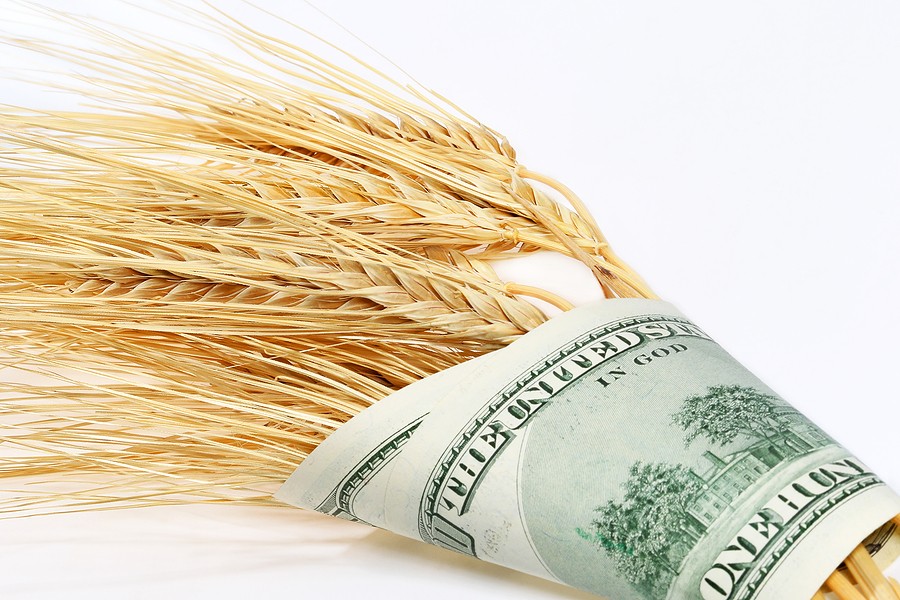The Trans-Pacific Partnership (TPP) is a behemoth treaty involving twelve countries, including the United States, that together account for 40 percent of the global economy. The treaty would impact many aspects of the economy, with vast consequences for food and agriculture. After years of secret negotiations in a truly undemocratic process to get the agreement finalized, the text of the TPP was released in November 2015. On February 4, 2016, representatives from the twelve countries met in New Zealand to sign the TPP, setting the stage for a protracted battle in Congress to ratify the treaty.
In the few months the public has had to actually read the agreement, what have we learned? The TPP is living up to its “NAFTA on steroids” hype.
Farmers and ranchers are increasingly wary of pro-corporate trade deals like the North American Free Trade Agreement (NAFTA) and the TPP, which push “economic development” policies built solely on exports. That shortsighted approach rarely pans out for farmers and ranchers, and almost always erodes the rural communities they call home. Economists are exposing the faulty assumptions and outdated models (see this study from the Global Development And Environment Institute at Tufts University) that were used to project the gains to the U.S. economy from the TPP and now are forecasting the job losses and economic contraction we can anticipate if Congress approves it.
On the heels of President Obama signing the TPP and passing it to Congress for their final approval or refusal, the consequences for food and agriculture warrant an examination.
Our top concerns for family farmers and the food system:
A nightmare for food safety
The TPP includes first-of-its-kind language allowing corporations to challenge U.S. food inspection protocols and decisions. Consumer advocates warn the TPP could quell efforts to keep out unsafe foods that don’t meet the same standards U.S. farmers and ranchers are required to meet.
Good for meatpackers, bad for ranchers
Under the TPP, the origin of beef is wherever the animal is slaughtered. So if it’s grown in America, but slaughtered in Japan, it’s Japanese beef. That reduces U.S. ranchers to anonymous widgets in the global supply chain, and makes it impossible for us to know if we’re really supporting American farmers when we shop at the grocery store. The TPP will also weaken health and safety standards regarding meatpacking plant inspections, livestock diseases, and food safety protocols to facilitate imports from countries lacking the resources to meet the high standards U.S. ranchers must reach.
Bye, bye labels
TPP has the ability to undermine local, state and federal laws, including labeling laws that inform consumers. U.S. livestock growers are watching their hard-fought Country of Origin Labeling (COOL) come under attack from meatpackers through global trade agreements. Supported by the majority of farmers and eaters, COOL simply tells consumers which country their meat comes from. But this kind of transparency is now considered a trade barrier by free trade agreements and is under threat of repeal.
Undermining U.S. Sovereignty
The recent legal challenge brought by TransCanada seeking $15 billion in damages over the U.S. rejecting the Keystone Pipeline was brought under NAFTA provisions that allow corporations to challenge U.S. laws. The TPP includes the same pro-corporate provisions and extends them to another 9,000 foreign corporations.
Bye, bye “Buy Local”
Programs like Buy American are attacked in free trade agreements as trade barriers because they give preference to local producers and economies rather than global supply chains. That could undo all the progress we’ve made in developing local and regional markets where eaters can use their food dollars to support farmers close to home.
Currency manipulation
The TPP includes no enforceable language to address currency manipulation, a trick used by foreign governments to tilt the playing field in their favor. Countries can devalue their currency, reducing the cost of their goods to us and increasing the cost of our goods to them. This has the potential to completely erase any gains the TPP would supposedly bring to U.S. farmers.
Not Climate Change-Ready
Farmers and ranchers – and our entire food system – rely on clean water, fresh air and healthy soil to grow our food. The TPP will roll back environmental protections in all U.S. trade agreements implemented since the Bush administration. The TPP also fails to even mention climate change in its thousands of pages, all while increasing the export of U.S. fossil fuels.
What Farm Aid says:
Farm Aid supports food sovereignty, the right of communities and nations to determine their own food and agriculture policies and the broader democratization of food and farming systems. Trade agreements must not undermine the food sovereignty of farmers and eaters here and abroad. Trade with foreign nations should strengthen our economy and create American jobs, while preserving our hard-fought environmental protections, labeling laws, labor rights, and health and safety standards.
The TPP will grow the profits of huge corporations and siphon away wealth from America’s family farmers, our rural economies and farmers around the world.
What farmers say:
Jim Goodman, organic dairy farmer, Wonewoc, WI:
Trade is good, but “free trade” doesn’t work for farmers or workers or most everyone else. It does, however, work spectacularly well for corporations who have over 600 advisers to the Trans-Pacific Partnership (TPP) negotiations. We have no access to the negotiations; corporations have plenty.
In farm country, we are told these trade deals will allow us to export more goods and in so doing, increase our profits. I have farmed for a good many years and I have known many farmers, most of whom farm on a much larger scale than I do. I have yet to meet a farmer who directly exports abroad, or even one who has the volume or operational infrastructure to do so.
Farmers’ products ultimately end up in the hands of some corporate entity that does the exporting/importing and generally takes most of the profit. At what expense those profits are taken is apparently of little concern to the trade negotiators in the secretive TPP negotiations or the pending Transatlantic Trade and Investment Partnership (TTIP) and Trade in Services Agreement (TISA).
Fair trade, on the other hand, puts the interests of people and the environment ahead of corporate profit. Fair trade would protect jobs, rather than off-shoring them as has happened after passage of all free trade agreements.
Larry Ginter, family farmer, Rhodes, Iowa:
As a long time family farm activist my frustration over the last 50 years of federal farm and trade policy has been like an Achilles heel. Independent family farmers use state-of-the-art technology and provide the labor while using nature’s precious resources – our air, water, and soil – to produce a crop; and then are forced to sell that precious commodity for about 60% less than it should be, according to true 2016 inflation.
This exposes a tremendous lack of logic and vision flowing from the halls of government.
The failure to adjust farm prices to the rate of inflation and properly compensate for the rise in production costs is shortsighted. When farmers sell their underpriced produce, the nation loses valuable “trade turn” or “multiplier dollars” that could be used to create jobs and new industries.
Selling grains on the cheap forces farmers to go into needless debt. Selling cheap grain internationally causes unrest and debt-bondage for independent family farmers. When farmers are forced to go into debt, they must produce more grain to meet payments. And that means more glut, upsetting supply and demand both domestically and internationally.
Trade policies like NAFTA and the TPP will never address the underlying problems of underpriced grain because of the interests of big industry depend upon farmers’ debt to enrich their coffers.





